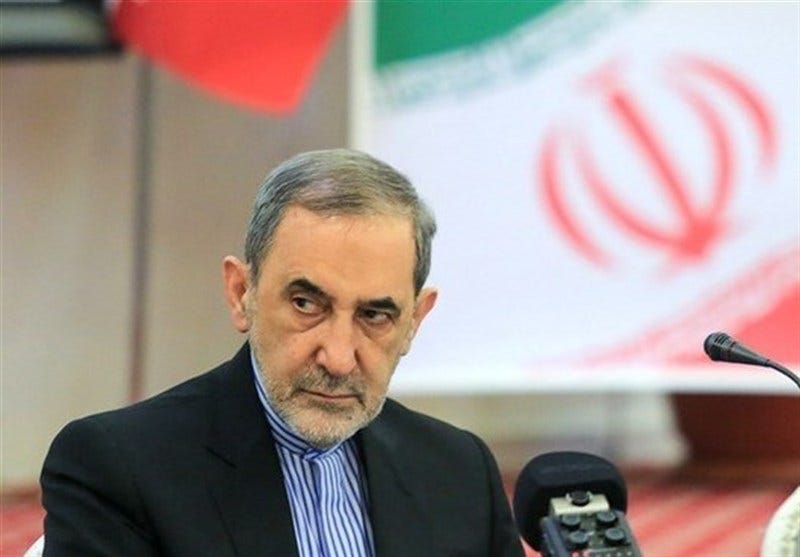Velayati: Zangezur Corridor Meant to Isolate Iran-Russia, Deepen US-Israel Interference
Zangezur project, under the guise of economic cooperation, in reality serves as a mechanism to weaken the Resistance Axis, cut off Iran and Russia and impose a land blockade
Iran, PUREWILAYAH.COM - Ali Akbar Velayati, senior adviser to the Leader of the Islamic Revolution Ayatollah Seyed Ali Khamenei, has strongly denounced the proposed Zangezur Corridor as a strategic deception orchestrated by the United States and the Israeli regime.
Speaking at a ceremony in Tehran commemorating Sheikh Safi al-Din Ardabili, Velayati described the corridor as a cover for a wider geopolitical project designed to undermine Iran’s sovereignty, disrupt regional stability, and sever Tehran’s links to the Caucasus.
Corridor as Geopolitical Cover for Strategic Encirclement
Velayati emphasized that the Zangezur project, under the guise of economic cooperation, in reality serves as a mechanism to weaken the Resistance Axis, cut off Iran and Russia, and impose a land blockade in the sensitive south Caucasus corridor.
He warned that this initiative aligns with broader Western strategies to divert pressure from the Ukraine conflict to Iran’s geopolitical environment, with support from NATO and pan-Turkist currents.
“These schemes are not just regional; they are global in scope,” Velayati said. “They are being advanced by global Zionism and the United States to dismantle the cultural and strategic unity of Iran.”
Iran’s Red Lines and Deterrent Doctrine
Velayati reiterated that Iran’s national security is a red line, and any attempt to threaten its strategic depth will be met with active resistance.
He noted that the Islamic Republic has already demonstrated a policy of “active prevention” by deploying forces to border regions and conducting deterrence exercises, signaling Tehran’s firm opposition to foreign interference under any pretext.
“Our response is not reactive. It is pre-emptive and grounded in strategic foresight,” he affirmed.
Honoring Historical Resistance and Cultural Identity
Velayati’s remarks were delivered during a commemoration of Sheikh Safi al-Din Ardabili, a revered Sufi mystic and ancestor of the Safavid dynasty.
The ceremony, held in Ardabil Province—long regarded as a stronghold of Shiism and Iranian national identity—served as a symbolic reminder of Iran’s deep cultural and religious roots in the region.
He praised Sheikh Safi al-Din as a figure who unified Iran through a synthesis of mysticism, Shiism, and national identity, emphasizing the enduring relevance of his teachings in the face of modern geopolitical threats.
“Just as Sheikh Safi united a divided Iran through spiritual and national revival, today the Iranian people—particularly in Azerbaijan—stand united in resisting division and foreign domination.”
Azerbaijan: A Bastion of Iranian-Islamic Resistance
Velayati lauded the people of Azerbaijan as historical defenders of Iran’s territorial integrity—from their resistance against Ottoman and Tsarist invasions to their opposition to separatist conspiracies during the 20th century.
He called on them once again to remain vigilant and resist modern colonial designs, warning that the Zangezur project is a repackaged separatist initiative masquerading as infrastructure development.
A Clear Message to Iran’s Adversaries
Velayati concluded with a strong message to Iran’s enemies: that Iran’s strategic unity, cultural identity, and geopolitical presence will not be compromised.
He vowed that the Iranian nation, inspired by its spiritual and revolutionary legacy, will continue to foil the designs of Zionism and Western hegemony through unity, wisdom, and faith.
“Just as Sheikh Safi confronted division in his time, the Iranian nation will confront and defeat today’s conspiracies with the same spirit of resistance.”
Velayati’s address highlights Iran’s unwavering stance against foreign schemes targeting its sovereignty, and underscores the Islamic Republic’s commitment to protecting its geopolitical integrity—especially amid rising tensions across the Caucasus and the wider region. (PW)
Source: Tasnim


